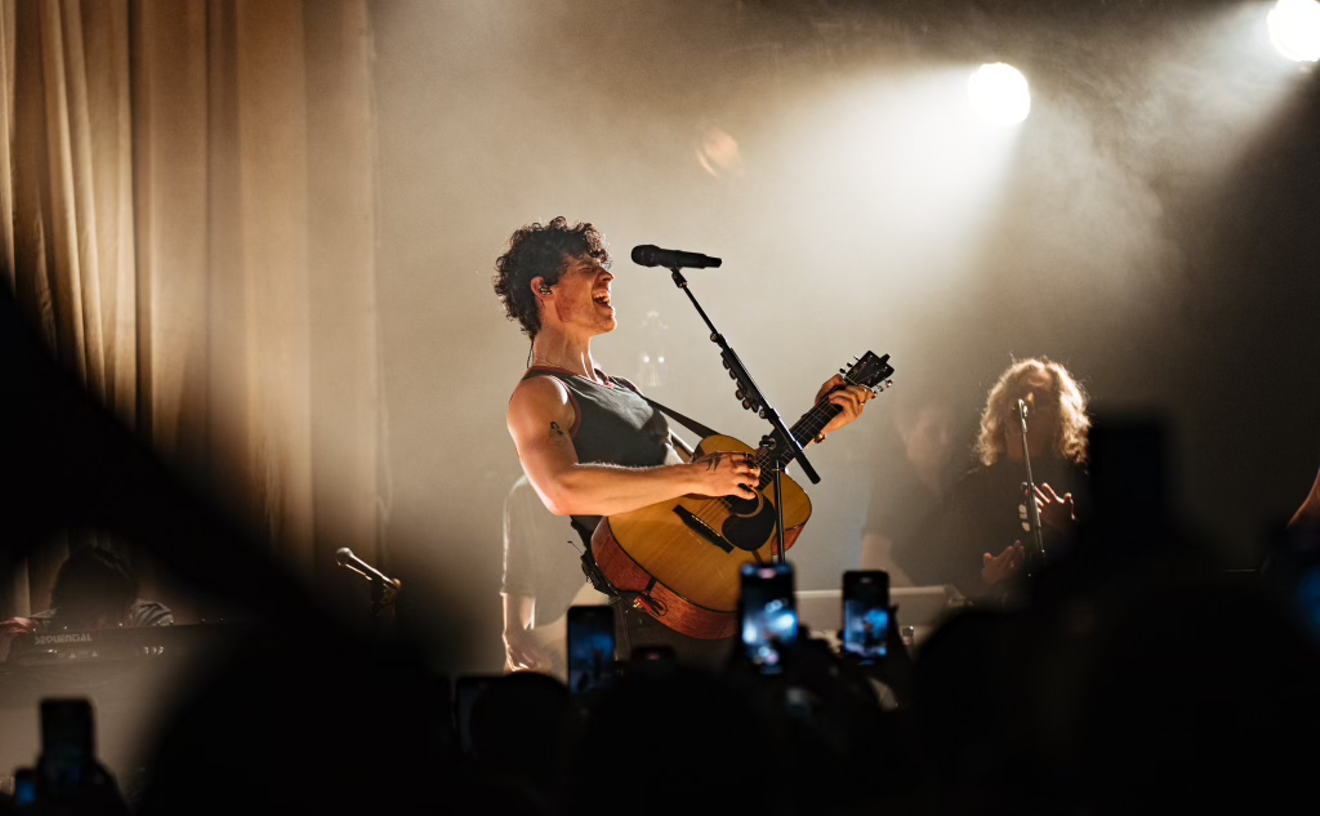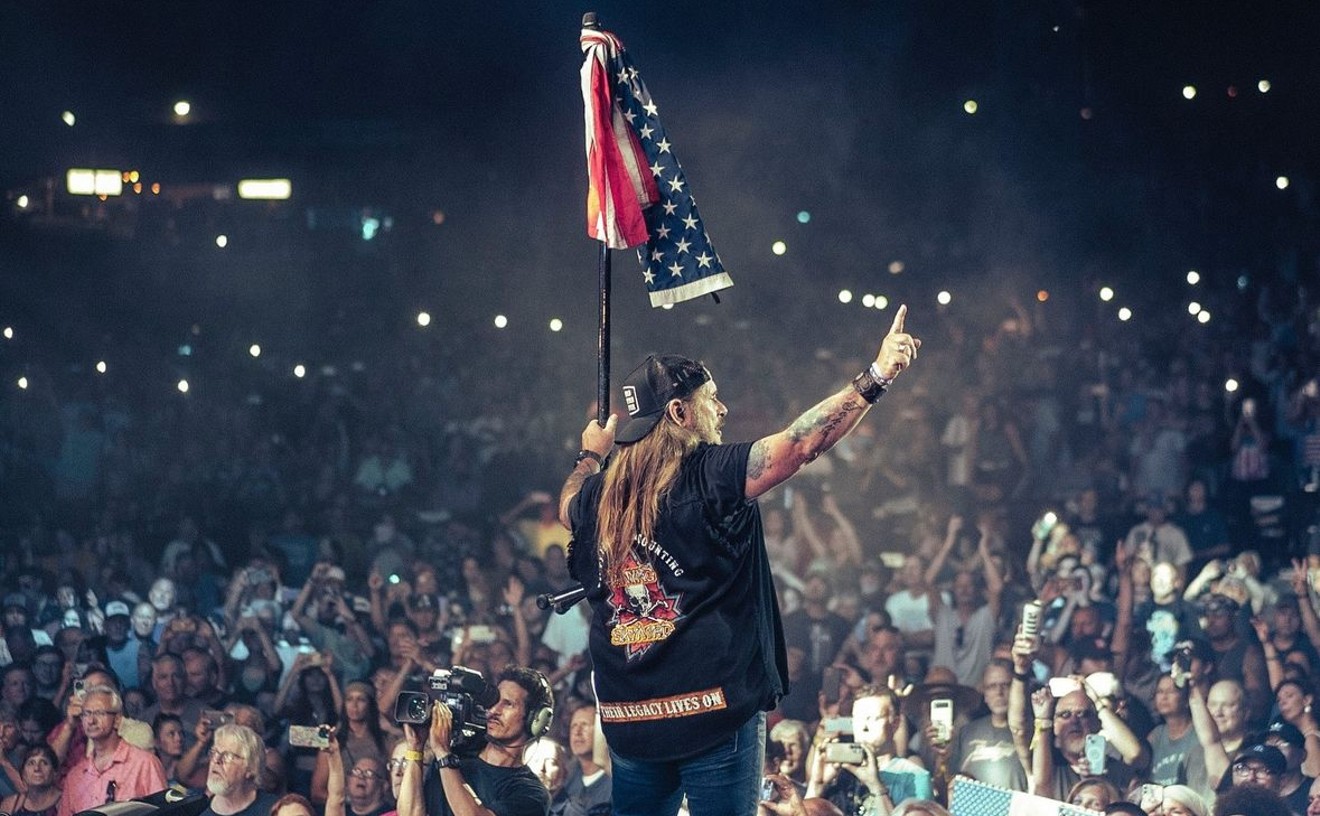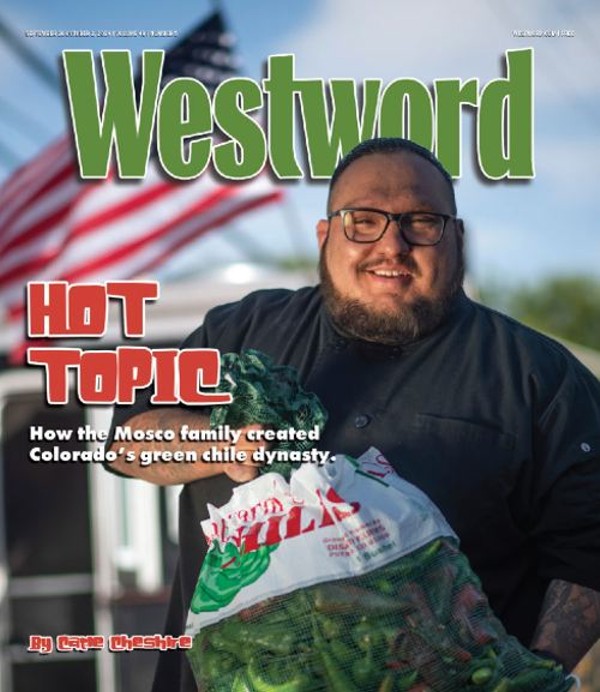Wesley Schultz has never been to the Bluebird Theater. Not for a show, anyway. And he's never been to Red Rocks, either. Since moving to Denver from New York, he's purposely avoided both. "I think it's superstitious or something," he explains. "If I really want to play somewhere, I probably won't go see a show there. I'm beginning to understand my own psychology."
Must be some powerful psychology. This week, Schultz's band, the Lumineers, are not only appearing at the Bluebird, they're playing two nights, both sold out. And later this summer, Schultz and company are due to perform at Red Rocks with Cake. Pretty impressive for a band that was playing at the Meadowlark, one of the city's most intimate rooms, not so long ago. Denver's been good to the Lumineers, a far sight better than New York, where Schultz lived before moving to Denver.
While living in Brooklyn, Schultz had to work three jobs in order to just survive, and as a musician, he couldn't get the time of day from mainstays of the smaller club circuit in New York City, at places like the Mercury Lounge or the Living Room. "When we moved away," Schultz points out, "we finally got into those clubs. Maybe they figured we were one of the many local acts. I can't figure it out. All I know is it's just a funny equation I don't understand."
Schultz and his bandmate Jeremiah Fraites had been looking for a place to move where it wasn't such a daily struggle just to find time for creative pursuits. Some friends of theirs had already moved out west and told them about a house they were renting for half of what Schultz was paying for an apartment in Brooklyn. So the duo picked Denver, thinking that maybe a couple of people would be playing music. They discovered the truth was quite different when they decided to check out open-mike night at the Meadowlark.
"I went to the open mike at Meadowlark and heard act after act, musician after musician, that were really fucking good," Schultz recalls. "It really kind of blew me away. I heard people like Sawmill Joe, Esme Patterson from Paper Bird, Tyler Despres and Maria Kohler, who were hosts of it at the time, and they would do songs from Science Partner, and Tyler performed stuff from the Dualistics."
The earliest Lumineers shows took place at the Meadowlark, and in that environment, Schultz found something he never quite had while in New York: a community of supportive peers who didn't dismiss his act as just another among many. "Once we started playing the open mike," he remembers, "we started hanging out, and it was a free exchange of information. There wasn't much information to share in New York about how do you tour, how long do you go on tour for, what cities do you go to, what bands do you know — things you would think people would share in New York. But I think just because of how costly it can be, unless your mom and dad are paying rent, you're probably going to have to work. And if you work, it's hard to go on tour, unless you make money on tour. And you don't make any money unless you tour a lot." In contrast, he adds, the friends they made here "shared a lot of information, and that was super-helpful, and that got us off the ground in the first place."
Schultz and Fraites had come up during the grunge and alternative-rock era of the '90s, so by the time the Lumineers set up shop in Denver, they had run through many different styles of music. "It was a lot of heavy, electric guitars," notes Schultz. "A of dissonance. A lot of pretty dark topics as far as lyrics went. It was this whole vibe, that being raised in the grunge era, that was pretty influential. I think I was raised on that, as far as the radio went. But my dad always played stuff like the Cars, Leonard Cohen and the Talking Heads, especially. I got into Bob Dylan and Tom Petty through my uncle."
That last one, perhaps more so than the others, trickled into Schultz's imagination as he and Fraites toyed around with new musical horizons early on in the band. "Basically, we just took a lot of songs we'd already written with, say, a heavy electric guitar or something," remembers Schultz. "I started singing it on an acoustic guitar, and Jer would play a shuffle or basically a two-step as a joke, and I said, 'I kinda like this.' It sort of had this Americana feel, or rootsy...or whatever you want to call it...but I liked it, and it suited me well."
From there the duo started to develop the kinds of songs that could easily be filed under Americana or folk without really being rooted firmly in either. To fully actualize their musical vision, the two felt they needed someone to bring in a different kind of sound to counterbalance the grit of their core songwriting. This led to their posting an ad on Craigslist for a cellist. The first person to respond was Neyla Pekarek, a classically trained cello player with a pristine, melodious voice and a pronounced knack for picking up any instrument Schultz and Fraites seemed to think was needed in a Lumineers song. But Pekarek had an asset beyond music that made her a perfect fit for the band Schultz and Fraites had in mind. "Mostly you just need to get along with them," declares Schultz. "We all started playing together because she was a good player. But the tour really determines who stays and who goes with that stuff. She was always just smiling and making us laugh."
With the addition of Pekarek and the development of the band's songs and live act, the Lumineers quickly grabbed the attention of the local scene, and their subsequent touring efforts eventually attracted the attention of Dualtone Music Group, which issued the band's debut full-length. By not wearing out their welcome at home or out of town, the three have managed that rare balancing act of remaining connected with their community and expanding their opportunities beyond the confines of their home base.
"We played so much in New York and learned the mistake of just playing one city over and over, sometimes three and four times in a week, versus touring," Schultz concludes. "On tour, you're actually having people come out because you're not there every week. You're there a healthy amount."












